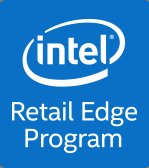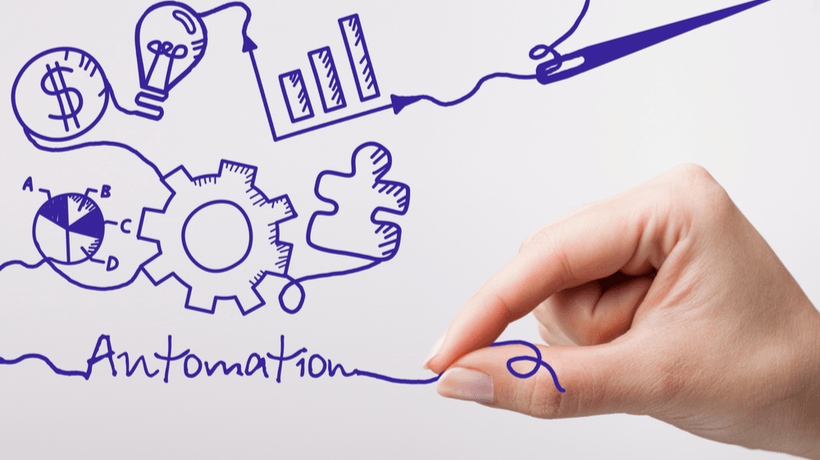Automate For A Better eLearning Experience
Marketing automation traditionally refers to technologies and software platforms specifically designed to aid organizations and their marketing departments in their efforts to market through multiple channels and automate repetitive tasks to save time and get the job done effectively.
Used properly, marketing automation can increase leads, helping to qualify them and convert them into new sales opportunities. This type of automation is an effective tool and delivers many benefits for marketers, sales teams, and management.
But that's not all it can do.
Demystifying Marketing Automation
The traditional view is that marketing automation pertains only to the software or technology platform. By boosting the automation of tasks, the marketing process becomes more efficient and can target specific customers or users, providing a more personalized experience.
Examples of some of these tasks include:
- Email marketing
- Social media posts
- Ad campaigns
- Workflow charts
- Notifications
Although it may seem contradictory to employ automated processes to achieve individualized results, that is precisely what occurs when technology and methodology are combined to establish a new paradigm.
The varied benefits of marketing automation extend further. By automating highly repetitive tasks and processes, marketers can drive more engagement with their target audience, convert more leads, and nurture those leads more effectively.
Extending The Reach Of Marketing Automation
The same marketing automation principles apply to corporate training and learning environments.
One goal of most eLearning programs is to design a highly personalized experience for the learner. By applying the techniques derived from marketing automation and adapting the messages and applications, it is possible to boost the effectiveness of online training platforms and achieve highly personalized, beneficial results.
We now have the methodology, technology, and opportunity to extend this innovation to learners throughout their training programs and beyond. It has opened new worlds for corporate training and for monitoring and measuring the results of the training.
Some of the identified benefits of automation in eLearning include:
- Delivering a high degree of personalization in learning experiences
- Increasing engagement across the entire spectrum of learners
- Improving communication through automated notifications
- Creating insightful and customized reporting
- Enhancing the quality of feedback throughout the training cycle
Assessing The Value Of eLearning
As we have previously discussed, effective eLearning programs rely on audience engagement, and the feedback gained can be instrumental in designing improved training campaigns that hold an audience’s attention. They not only generate immediate enthusiasm but lead to better retention and improved competence. One of the advantages of automated notifications, reminders, and reports is the immediacy of delivery and the associated ability for follow-up and necessary action.
Automation will help speed a message on its way, but it is also used to validate information. In effect, it can provide verification that the intended message was delivered and understood. Automation can also be used as a checkpoint for program designers, offering better assurance that mistakes are minimized and learning is maximized.
The principles of marketing automation are instrumental in helping continue the process throughout the eLearning experience in the following ways:
- Easily track the progress of those enrolled in training programs.
- Assign learners to different lists as they progress through different training levels.
- Notify learners when they reach specific benchmarks and milestones, when they achieve specific goals, or when they become eligible for badges and certifications. It's possible to automate the process even further by sending digital badges, congratulatory messages, and updating participant personal profiles automatically.
- Send messages that contain links to additional training content if the learner does not master a specific goal or fails a quiz.
- Transmit updates and notifications regarding progress to immediate supervisors and managers regarding learner progress.
- Reinforce learning and boost participant engagement in eLearning programs through automated messaging. Take the opportunity to automatically award points and rewards as learners reach certain levels and achieve specific training goals. These small rewards are as effective as games and contests to foster healthy competition among program participants.
- Generate automatic polls or surveys to gain valuable feedback during training. Encourage learners to share their experiences and offer suggestions for improving specific eLearning modules, courses, and programs.
The principles gleaned from marketing automation can be customized in distinctive ways for instructors and managers who must monitor and analyze the value of such training efforts. By establishing workflow designs that automatically personalize each learner's experience, it's possible to identify areas of difficulty and address them.
Communication Is Key
In the Intel® Retail Edge Program, a recent communications poll conducted with Program members unveiled some interesting findings. Respondents placed email and text messages at the bottom of a list of preferred methods of communicating. However, the immediacy of those communications was appreciated when the messages concerned prizes earned or reward eligibility.
Specifically, Program members were eager to learn about their progress toward earning Master or Legend status or, conversely, the possibility of losing such status.
Simply turning on automatic text messaging communication capability in those areas resulted in substantially improved Program reviews. From that experience, we determined that there are varied uses for automation and messaging about reward status. We have since expanded our use of automated messaging, and we intend to explore the expanded use of marketing automation across other Program areas for the future.
We believe there are effective ways to automatically schedule events through automation by using triggers, dates, and times to send automatic information. We can identify and segment various populations and use multiple communication methods, depending on individual preferences. We believe this is a way to enhance and strengthen our Retail Sales Training Program.
Automation offers a way to respond to individual needs and goals. For example, we can customize communication with varied messaging—push, text, emails, private mailbox, and others. We agree that our members should have the ability to choose what works best for them, and we hope to expand the Program’s effectiveness by further integrating automation in new ways.
The parallel gain is that such tailored programming empowers and encourages the sales associates of retail partners to opt-in, not only to certain types of communication but also to the specific training campaigns that serve to expand their opportunities.
Summary
Marketing automation is a critical ingredient in creating and tailoring a robust corporate training platform. Automation also allows you to better communicate and engage with your participants, both individually and as a group, in their preferred methods.
This article has highlighted only a few ways marketing automation can be applied in unique ways in an eLearning environment. Is marketing automation part of your corporate eLearning platform? If so, I’d love to hear how it is benefitting your training efforts.
Notices and Disclaimers
© Intel Corporation. Intel, the Intel logo, and other Intel marks are trademarks of Intel Corporation or its subsidiaries. Other names and brands may be claimed as the property of others.


